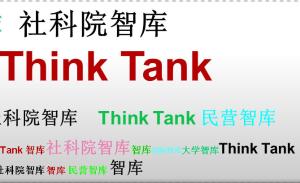Country reports
A critical debate emerged in the last years on the quality and effectiveness of political consultancy by Chinese think tanks. It is against this background that different foreign think tank models – including the German political foundations – are seen as reform models. However, till today, the current state of most of Chinese think tanks does not show substantial steps towards a higher degree of autonomy and independence from state and party.
It is therefore not by accident that the expression “internal” nei nao内脑 is used in Chinese to describe the specific character of Chinese think tanks, whereas their Western counterparts are called “external brains”.
The essay discusses which role those institutions play in decision-making processes of party and state. It analyzes the international cooperation and shows strengths and weaknesses of the current consultancy system.
The authors offer several reform options, which should be considered to increase the quality and international competitiveness of Chinese think tanks. Their internal independency and professional competency have to be improved urgently in order to adapt more quickly to a rapid changing political and social framework. Part of this reform agenda could be a nation-wide evaluation system with a set of clearly defined qualitative criteria. Think tanks should be included in political decision-making in a more transparent and influential way. Communication strategies and knowledge management have to be modernized in order to get more recognition from decision makers and the public. A stronger exchange with international think tanks could help to stimulate reforms.



